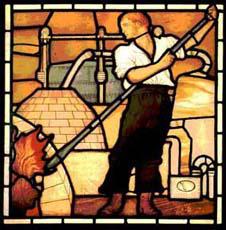Samuel Smith

Sir Samuel Smith worked as a doctor in Leeds. He was interviewed by Michael Sadler and his House of Commons Committee on 16th July, 1832.
Question How long have you practised in your profession?
Answer I have been in actual practice upwards of nineteen years.
Question Have you had extensive practice, particularly among the poor, during the period.
Answer Yes. I have been parish surgeon of Leeds for thirteen years. I am one of the surgeons of the Leeds Infirmary, the largest hospital in Yorkshire, an institution through which about 5,000 patients pass annually, about one-sixth of which pass under my immediate care.
Question Is the appearance of factory children easy to be distinguished from that of the children composing the rest of the labouring population differently employed?
Answer Yes. It is easy to see that they have not that healthy appearance; they appear languid, weak, and debilitated.
Question Is not the labour in mills and factories "light and easy"?
Answer It is often described as such, but I do not agree at all with that definition. The exertion required from them is considerable, and, in all the instances with which I am acquainted, the whole of their labour is performed in a standing position.
Question What are the effects of this on the children.
Answer Up to twelve or thirteen years of age, the bones are so soft that they will bend in any direction. The foot is formed of an arch of bones of a wedge-like shape. These arches have to sustain the whole weight of the body. I am now frequently in the habit of seeing cases in which this arch has given way. Long continued standing has also a very injurious effect upon the ankles. But the principle effects which I have seen produced in this way have been upon the knees. By long continued standing the knees become so weak that they turn inwards, producing that deformity which is called "knock-knees" and I have sometimes seen it so striking, that the individual has actually lost twelve inches of his height by it.
Question Are not the females less capable of sustaining this long labour than males.
Answer Yes. In the female the pelvis is considerably wider than the male. When having to sustain the upright posture for long periods, the pelvis is prevented from being properly developed; and, in many of those instances, instead of forming an oval aperture, it forms a triangular one, the part supporting the spine being pressed downwards, and the parts receiving the heads of the thigh-bones being pressed inwards. When they are expecting to become mothers, sometimes because of the development of the bones of the pelvis, there is not actually space for the exit of the child which is within the womb. Under these circumstances, it is often the painful duty of the surgeon to destroy the life of the child in order that he may preserve the more valuable one of the mother. I have seen many instances of this kind, all of which, with one exception, have been those of females who have worked long hours at factories. I believe if horses in this country were put to the same period of labour that factory children are, in a very few years the animal would be almost extinct among us. Every gentleman who is in the habit of using horses well knows the effect produced upon them by too long continued labour; you may give them what corn you please, but nothing will counteract the effects of too long continued labour.
Question Are there many accidents in the factories and mills?
Answer I have frequently seen accidents of the most dreadful kind. I have seen cases in which the arm had been torn off near the shoulder joint; I have seen the upper extremity chopped into small fragments, from the tip of the finger to above the elbow.
Question In what manner you think that a legislative enactment could be made beneficial for the prevention of accidents from machinery?
Answer I have no doubt that a great number of accidents might be prevented by some act to compel the owners of mills to have such horizontal and upright shafts as revolve with great rapidity, in situations, where children are placed near them, sheathed and covered with square boxes of wood, which may be done at a very trifling expense, and which I understand is often neglected.

